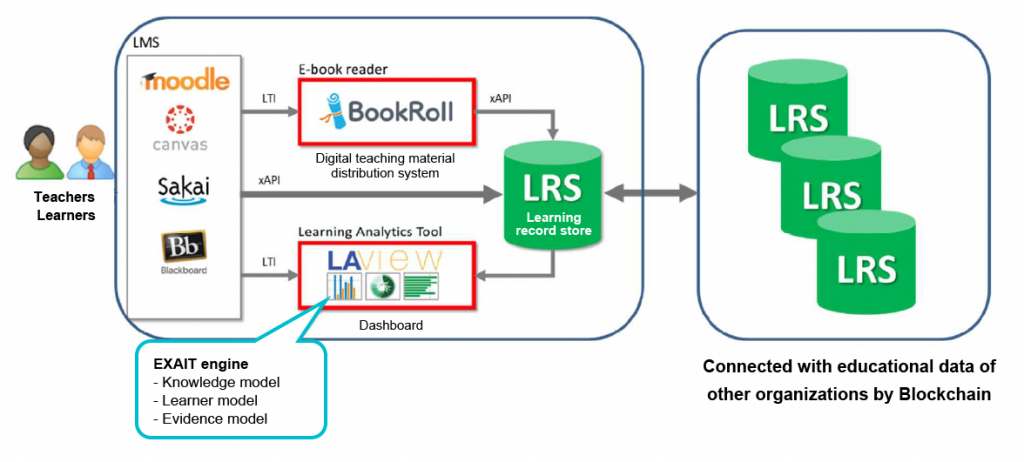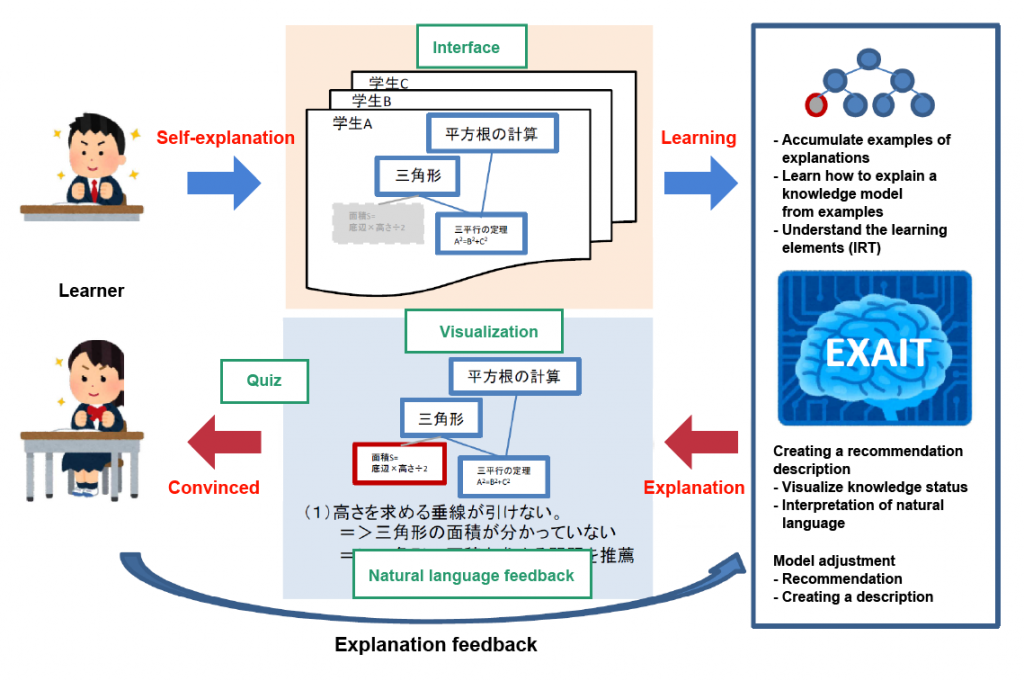In this research, we will build EXAIT (Educational Explainable AI Tools), an explanation generation AI engine for education. With a collaborative effort between LET Research Unit at Kyoto University, Uchida Yoko Corporation and Kyoto City Board of Education, the EXAIT learning analytics system would be introduced to schools. In July 2020, this project was adopted by the National Research and Development Corporation New Energy and Industrial Technology Development Organization (NEDO) as a “Technology development project for next-generation AI that evolves with humans”. From November 2020, system implementation and empirical research has started.
Background
The Ministry of Education, Culture, Sports, Science and Technology’s “GIGA School Concept” is accelerating adoption of personal computing devices for learners and conducting CBT (Computer Based Testing). It creates an environment where educational big data can be accumulated and used for AI driven services in education.
However, at the school level, there remains an issue that if the learners were not satisfied with the data analyzed by AI, they would not be able to motivate themselves. Therefore, our laboratory and Uchida Yoko attempt to not only automatically recommend any content, but also help the learner to work on the task more convincingly, and the teacher to grasp the stumbling block of their students and give appropriate guidance for the learning task. While effectively implementing the “explainable AI” for learning and teaching activities, we have created a five-year plan that includes conducting empirical research in collaboration with the Kyoto City Board of Education. This research is commissioned by NEDO.
Overview
The learning analytics framework, LEAF originally proposed by our laboratory consists of BookRoll, a digital teaching material distribution and reading platform and LA View, a learning analytics dashboard. In the EXAIT project we will develop and integrate an AI engine in the LEAF framework that generates explanations from learning logs and interacts with the users to update the AI models.

To measure the effectiveness of the system, we will conduct empirical research at school site in collaboration with the Kyoto City Board of Education. Uchida Yoko will implement the system that is easy for learners to use at school, manage and extract learning data, and jointly verify the learning effect based on the data. Studies are scheduled to start at a school in Kyoto city by the end of 2020.
R & D of data-driven EXAIT
The EXAIT AI engine will be developed from both “model-driven” and “data-driven” learning behaviors.
In the “model-driven” approach, learners explain their answering process based on the teaching materials and knowledge maps that are provided in the system. They can choose what to learn next and problems to be solved along with reasons. In the “Data driven” approach the system checks recommendation usage and learning logs to generate bottom-up explanations of why the recommendation was useful. Then, by fusing “data-driven” and “model-driven”, we will develop AI that understands the learning process of students, generates explanations, and recommends what to learn.

Research grant
- National Research and Development Corporation New Energy and Industrial Technology Development Organization “Technology Development Project for Next-Generation Artificial Intelligence Evolving with People”
- “Development of basic AI technology that can be explained / EXAIT: Research and development of Educational Explainable AI Tools by co-evolution of learner’s self-explanation and AI generated explanation”
- July 2020-February 2022